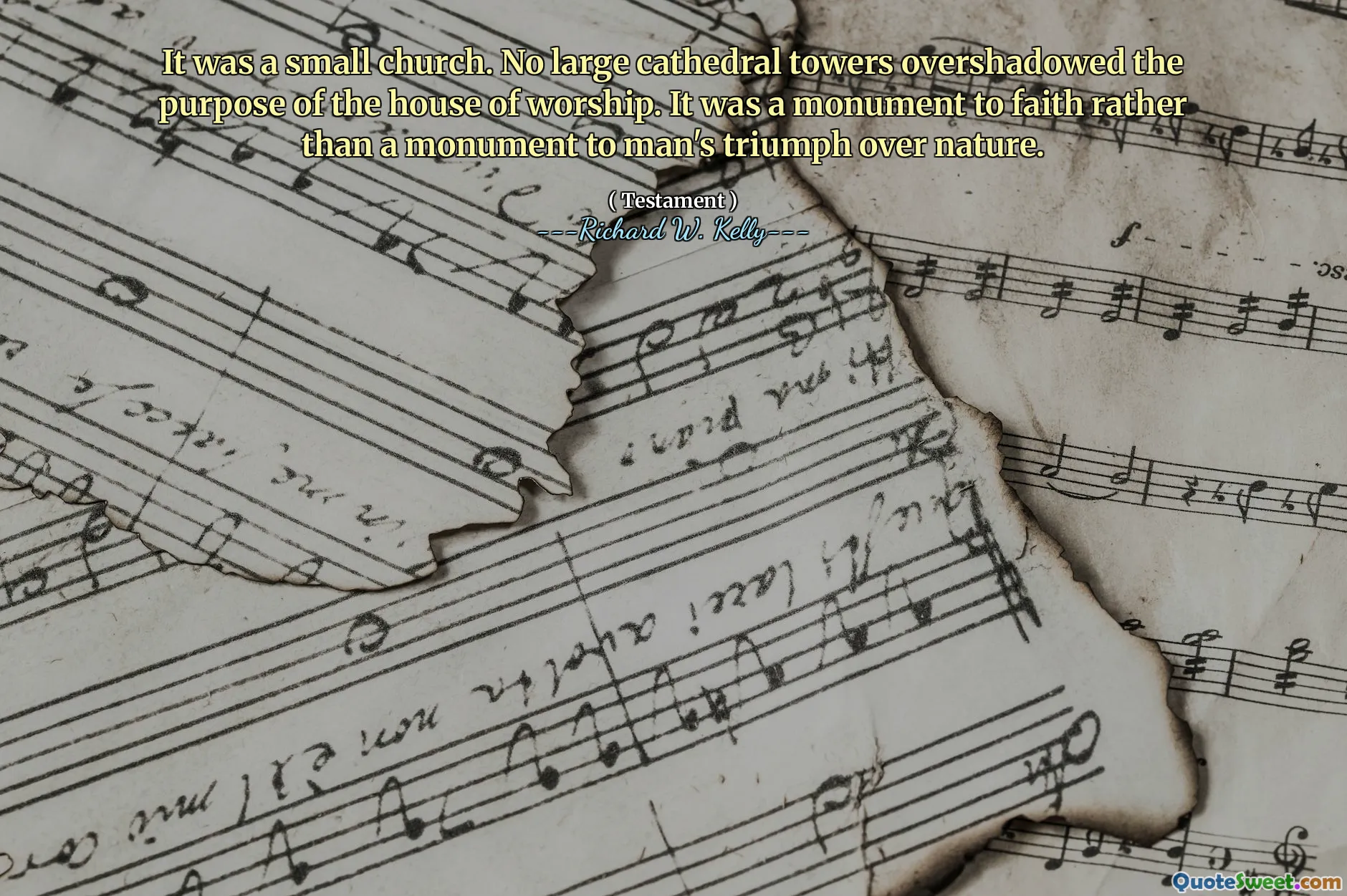
It was a small church. No large cathedral towers overshadowed the purpose of the house of worship. It was a monument to faith rather than a monument to man's triumph over nature.
The quote from Richard W. Kelly's Testament evokes a profound appreciation for humility and spiritual focus over grandeur and human achievement. It contrasts the simplicity of a small church with the often overwhelming presence of large cathedral towers, emphasizing that true worship centers on faith itself rather than the impressive displays of human architecture or power. This reflection reminds us that the essence of a spiritual space—and arguably spirituality itself—is not about demonstrating dominance over our environment or flaunting human creativity and might. Instead, it is about humbly gathering as individuals to connect with something greater than ourselves.
In modern society, where success and achievement are frequently measured by size, visibility, and influence, this quote serves as a gentle reminder that there is profound value in authenticity and purpose. The smaller church symbolizes intimacy and accessibility, a place where faith can be genuinely experienced without distractions. Moreover, it challenges the broader cultural narrative that equates bigger and more elaborate with better or more meaningful.
This perspective encourages us to reassess our values, especially in relation to the physical spaces and structures we often associate with reverence and spirituality. It suggests that when faith is the foundation and focal point, the environment—no matter how modest—can become a powerful sanctuary. Ultimately, it champions the idea that true monuments to faith arise not from towering constructions but from the collective belief and devotion of the community within.


